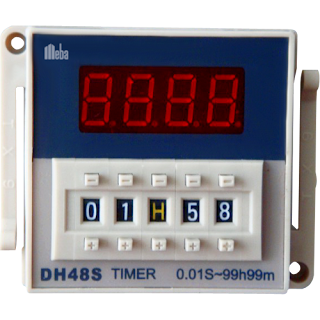Time Delay Relay
Time delay relays are simply controlled relays in which there is a time delay function built-in. By energizing the secondary circuit, 120-volt timerrelay control an event. But you can even do both after a certain amount of time or for a certain amount of time.
In a standard normally open control relay, when voltage is applied to the coil on the primary side the contacts on the secondary side close immediately. The contacts on the secondary side will open and cut the power to the load when the electricity is cut on the primary side.
We do not want an immediate response on the secondary side in a few applications. But after a certain amount of time, we want this to occur, or only for a certain duration. We can use a 12v dc timer relay for this purpose.
The delay on the type and the delay-off type is there are two main types of basic timing relays. These are normally open or normally closed type relays and from milliseconds to hours or even days can be controlled.
Use of Timing Relays
In industrial applications, HVAC systems, and in building services to provide time-delayed switching there is a tremendous use of timing relays. A few examples are simply automating an action, starting a motor, control an electrical load. For targeted logic needs, they play a vital role.
In almost any application you can apply timing relays. These are available as circuit boards plug-in devices, base-mounted devices, and even as DIN rail-mounted controls.
Traditionally, the availability of timing relays was only as single-function, single-time-range devices. You will still find these devices and they are usually used in applications with very simple timing needs.But with different functions and multiple timing ranges, we can get more advanced timing relays.
Over a wide
range, maximum is capable of controlling voltages or currents also, so their
application isn’t limited. In setting 3 phase timer relay up there is no
requirement of programming language. Via the dials and the manufactures guides
that will instruct you on how to do this, we can simply adjust the settings. Follow us on facebook






No comments:
Post a Comment